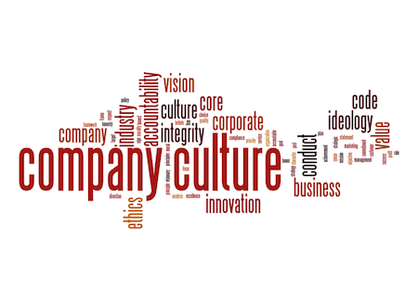 Americans, who work some of longest hours in the Western world, often complain about lack of free time. But Cristobal Young, an assistant professor of sociology at Stanford University, says the situation is more complex. In a study with colleague Chaeyoon Lim published in Sociological Science, Young discovered that for free time to be satisfying, it must coordinate often with that of friends and loved ones. Drawing on data from over half a million respondents, the study shows that “both workers and the unemployed experience remarkably similar increases in emotional well-being on weekends and have similar declines in well-being when the workweek begins.” The authors say this is largely because social time increases sharply on weekends for both workers and the unemployed. “Weekend well being is not due to time off work per se but rather is a collectively produced social good stemming from widely shared free time.” Writing in The New York Times, Young calls time a “network good” -- something that derives its value from being widely shared. Young notes that many workplaces are upping worker flexibility, but says the research suggests, “a disadvantage of these efforts is that they may lead us even further from a weekend-like system…[and] threaten, ultimately, to exacerbate the decline in civic engagement and social contact…” We want to hear: Do you enjoy your free time more when it enables you to coordinate with those whose companionship you value? Have you taken measures to align free time with friends and family? To join the conversation, click "comments" on our Community of Practice Forum. If you would like to read more about creating a habit around masterful communication, check out our book: Be Quiet, Be Heard: The Paradox of Persuasion.
2 Comments
 When searching for a job, most of us focus on elements like title, position, and salary. Adam Grant, a professor of management and psychology at the Wharton School of the University of Pennsylvania, says we should be equally as concerned with culture, an organization’s values, norms, and practices. Writing in The New York Times, he suggests that the best way to study the culture of an organization you’ve never worked for is to ask its employees to tell stories about their workplace. In a classic study, a team of researchers led by Stanford professor Joanne Martin analyzed the stories people told about their workplaces, and found they fell into common categories: Is the big boss human? Can the Little Person Rise to the Top? Will I Get Fired? How will the boss react to mistakes? According to Grant, people judge cultures as just, safe and controllable “when the big boss is human, the little guy can make it to the top, and leaders try to protect employees even when times are tough and mistakes are made.” Grant adds that while it’s ideal to find a great culture, job seekers should at least rule out toxic ones. “When stories suggest that an organization is wildly unfair, unsafe or immovable, cross it off your list.” We want to hear: What do you wish you had known about an organization’s culture before you took a job there? What story would you tell about your own organization’s culture? To join the conversation, click "comments" on our Community of Practice Forum. If you would like to read more about creating a habit around masterful communication, check out our book: Be Quiet, Be Heard: The Paradox of Persuasion.  As Valentine’s Day approaches, consider giving your loved ones these gifts—each with more staying power than flowers, cards, or chocolates: 1. Listen when your impulse is to argue. Listening, a rare and pure gift from the heart, requires us to be quiet long enough to ponder our partner’s message. 2. Edit accusations that could make your partner feel put down and judged. Instead, describe your feelings. “I feel lonely” has a different ring than, “You’re selfish and unresponsive.” 3. Acknowledge your role in a problem. Every issue has another side. When we describe how we contributed, even unintentionally, to a problem, we encourage our partner to hear us out. 4. Agree on a solution. Reach an explicit, collaborative agreement about what each of you will do differently in the future. 5. Follow up on your agreements. Many attempts at resolving conflict end in failure, but following up proves your commitment to view conflict resolution as a process rather than a one-shot deal. As marriage and business partners for over 40 years, we can attest that while confronting issues is never easy, avoidance is worse. And we still endorse chocolate too: It’s good for your heart. We want to hear: What communication behaviors would you like to change in your relationships this year, and what steps are you taking to do so? To join the conversation, click "comments" on our Community of Practice Forum. If you would like to read more about creating a habit around masterful communication, check out our book: Be Quiet, Be Heard: The Paradox of Persuasion.  After Minnesota Vikings kicker Blair Walsh had furious fans lambasting him online for missing a potentially winning field goal against the Seattle Seahawks in a wild card football playoffs game in January, a class of kind first-graders took on a mission to cheer him up. The schoolchildren of Northpoint Elementary each wrote letters to lift Walsh’s spirits with messages like, “We still think you’re awesome,” “Keep on trying,” and, “I know it can be hard to get through things that make you sad…” Several students reminded Walsh that everyone makes mistakes, and some offered examples of times they were in similar situations (messing up a cartwheel, missing a game-winning shot or kick). Northpoint teacher Judie Offerdahl said Walsh's miss became a teachable moment in empathy. And Walsh was so grateful for the outpouring of kindness he visited the class in person. We’ve written before about how leaders can best react when good employees underperform or make a mistake. Not surprisingly, research shows that a compassionate response yields the most positive outcomes. We think these first graders have tremendous leadership potential! We want to hear: When someone was understanding about a mistake you made, how did it affect your mindset? Can you think of an example of when your empathy has helped out a co-worker? To join the conversation, click "comments" on our Community of Practice Forum. If you would like to read more about creating a habit around masterful communication, check out our book: Be Quiet, Be Heard: The Paradox of Persuasion. |
Archives
July 2024
Categories
All
|
|
Glaser & Associates, Inc.
Executive Offices 1740 Craigmont Avenue, Eugene, OR 97405 541-343-7575 | 800-980-0321 [email protected] |
© 2019 Glaser & Associates. All Rights Reserved.


 RSS Feed
RSS Feed